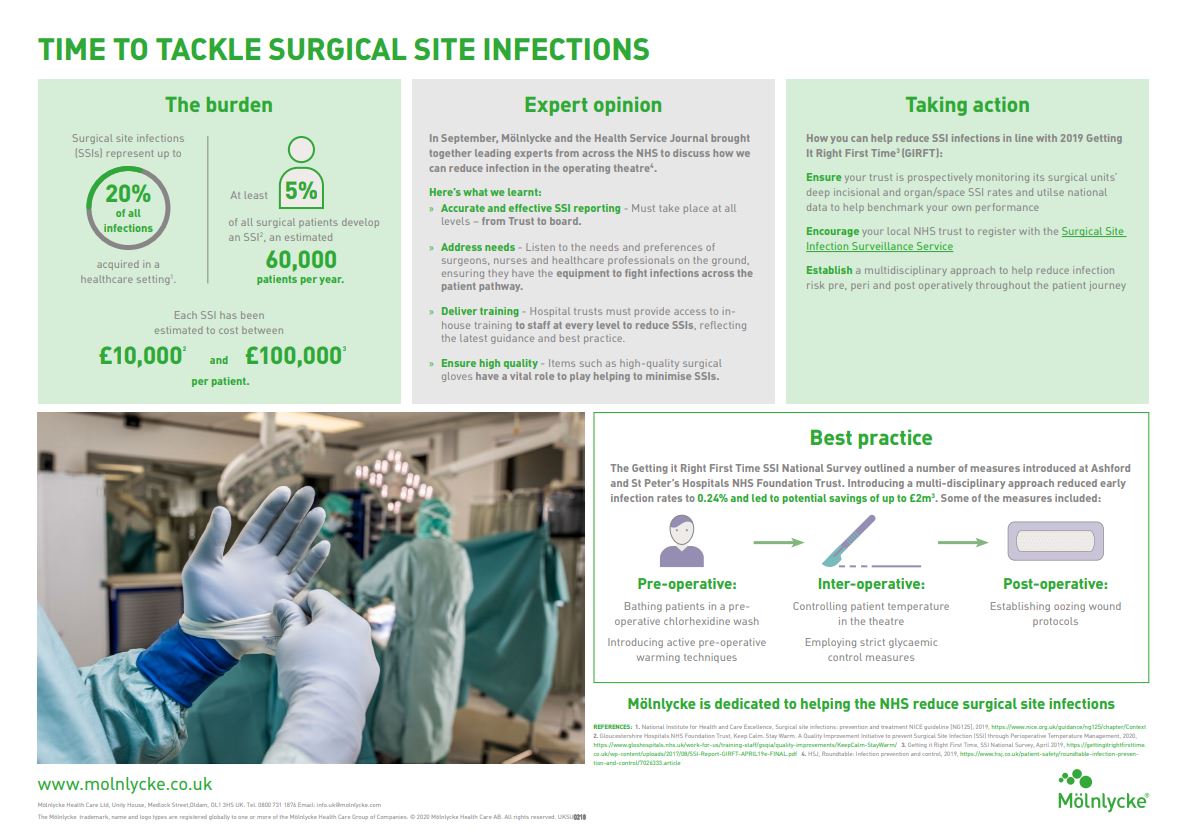John Timmons, Medical Director
As a qualified nurse and Mölnlycke’s Medical Director, I have seen first hand the devastating effects of healthcare associated infections on patients, their families and the NHS.
The latest estimates show that around 300,000 healthcare associated infections occur in the UK each year, costing the NHS £1 billion annually
One of the key tools against the spread of SSIs in the operating theatre are surgical gloves, a protective barrier to prevent the transmission of pathogens between the patient and surgeon. Whilst high quality surgical gloves help to reduce the risk of exposure to infection, a trend is taking place across health systems whereby surgeons’ requirement for quality and safety is being deprioritised in favour of cost minimisation. As we move into 2020, there are of course many pressures facing the NHS, but we cannot afford to be complacent in the fight against SSIs, nor ensuring that healthcare professionals have the very best tools at hand to reduce their spread.
In order to explore this further Mölnlycke hosted a roundtable in conjunction with the Health Service Journal on how we can improve infection prevention in the operating theatre. We were joined by leaders from across the NHS at the King’s Fund for a wide ranging and informative discussion. You can read and watch highlights of the discussion here.
We covered a huge amount of ground and are immensely grateful to all who attended. On the vital role of capturing and sharing data on SSIs, we received some great insights from Professor John Skinner, Honorary Treasurer of the British Orthopaedic Association and a council member of the Royal College of Surgeons. He shared best practice on how important new data sharing practices through the National Joint Registry have been to his specialty. Orthopaedics is a particularly high risk area
Another key focus of the discussion was ensuring that amid tightening hospital budgets, sustainable and long-term value was prioritised over short term cost cutting exercises when procuring surgical equipment. Panellists shared their concerns over the ‘cheapest is best’ approach being used in some areas, with one attendee cautioning that ‘If you buy cheap, you buy twice and in some cases three times.’ The panel noted that clinicians were not always being consulted on the purchasing decisions for items that directly affected them, including surgical gloves.
Given the role high quality surgical gloves play in helping to reduce the risk of exposure as well as minimising surgical glove failures
At such a dynamic moment in the NHS’s history and the publication of the Long-Term Plan, Mölnlycke is committed to working collaboratively with the NHS, ensuring we work at all levels of the health system to help minimise all healthcare associated infections. At the roundtable it was fantastic to see the dedication of our partners across the health system in meeting this challenge and I look forward to working further with them and others as we head into the new decade.

SSIs represent up to 20%
Download infographic
'References'




